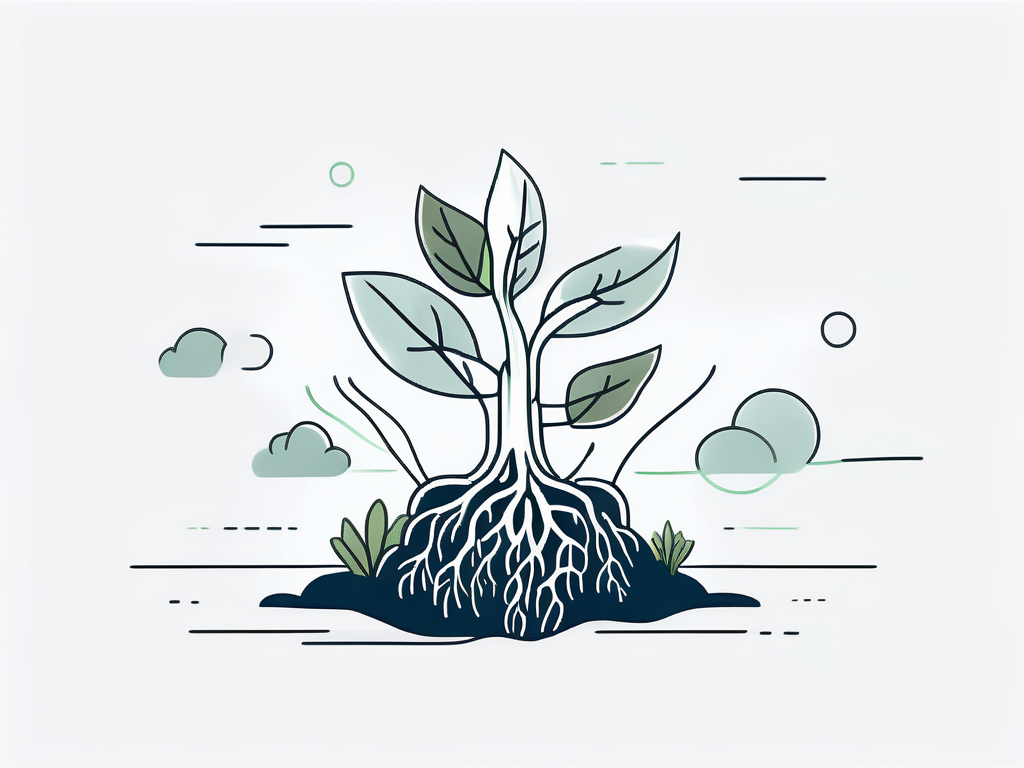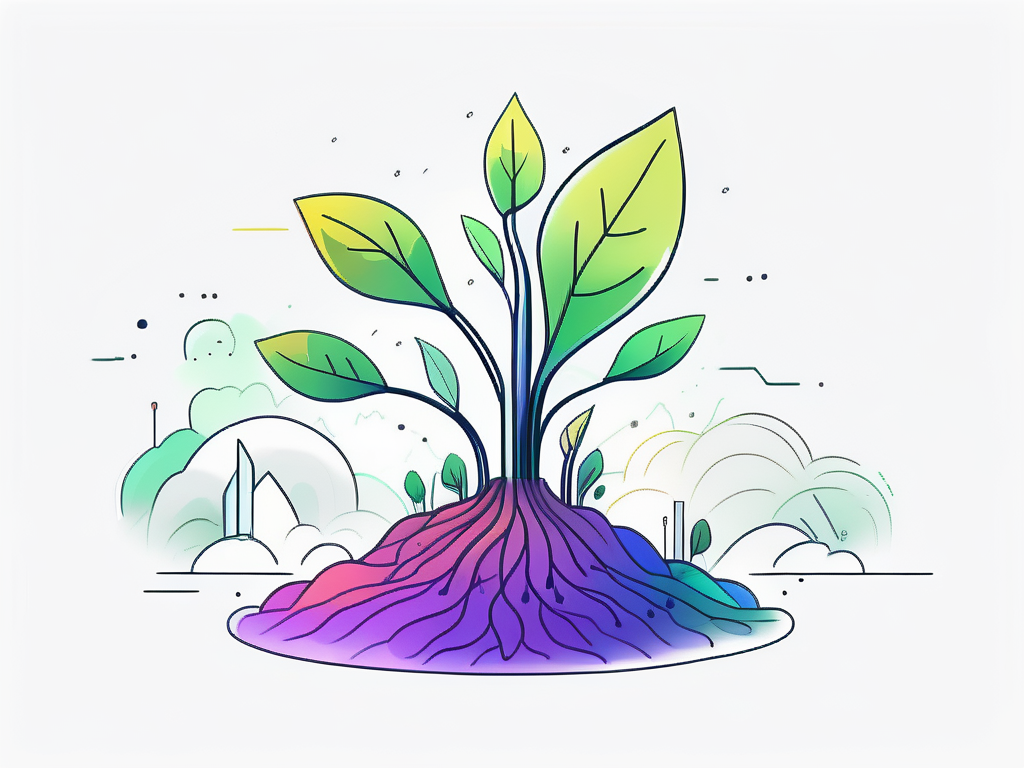Scaling Smart: Proven Strategies for Early Stage SaaS Growth

Scaling Smart: Proven Strategies for Early Stage SaaS Growth
In today's fast-paced digital landscape, Software as a Service (SaaS) has become an increasingly popular model for businesses to deliver their products and services. As an early-stage SaaS company, scaling your business can be an exciting but challenging journey. In this article, we will explore proven strategies that will help you achieve smart and sustainable growth.
Understanding the basics of SaaS growth
Before we dive into the strategies, it's important to understand what SaaS is and why it's crucial for businesses today. SaaS, or Software as a Service, is a software distribution model where applications are hosted by a third-party provider and made available to customers over the internet. This cloud-based technology eliminates the need for customers to install and run software on their own servers, reducing costs and complexities. It allows businesses to access powerful tools and services on a subscription basis, enabling flexibility and scalability in their operations.

Moreover, the rise of SaaS has revolutionised the way companies operate, offering innovative solutions for various industries such as finance, healthcare, and marketing. The flexibility and accessibility of SaaS products have empowered businesses of all sizes to streamline their processes, enhance collaboration, and drive productivity.
However, scaling a SaaS business comes with unique challenges. Unlike traditional businesses, SaaS companies often face high upfront costs for product development and acquisition, followed by low marginal costs for customer acquisition and retention. This requires a different approach to growth strategies. In addition, the competitive landscape in the SaaS industry is constantly evolving, with new players entering the market and existing ones innovating to stay ahead. This dynamic environment necessitates continuous adaptation and strategic planning to sustain growth and remain competitive.
Laying the groundwork for successful scaling
Before you can scale your SaaS business, you need to ensure you have a solid foundation. This involves building a product that meets the needs of your target market and identifying who your ideal customers are.

Firstly, your product needs to be reliable, user-friendly, and constantly evolving to stay ahead of the competition. It's essential to invest in ongoing product development and prioritize features that provide the most value to your customers.
Additionally, understanding your target market is crucial for successful scaling. By conducting thorough market research, you can identify the pain points of your potential customers, tailor your product to meet their needs, and refine your marketing message accordingly.
Furthermore, when it comes to scaling your SaaS business, it's important to consider the scalability of your infrastructure. As your customer base grows, your platform needs to be able to handle increased demand without compromising on performance. This may involve investing in cloud services or upgrading your servers to ensure seamless operations.
Moreover, building a strong team is vital for successful scaling. Surround yourself with talented individuals who are passionate about your product and vision. Hiring the right people, from developers to customer support staff, can make a significant difference in your ability to scale effectively.
Key strategies for early-stage SaaS growth
Now that you have a solid foundation, it's time to implement key strategies that will fuel your early-stage SaaS growth.

When embarking on the journey of early-stage SaaS growth, it is imperative to remember that success lies in the ability to adapt and evolve in response to customer needs and market trends. By staying agile and customer-focused, you can navigate the ever-changing landscape of the SaaS industry with confidence and resilience.
Implementing a customer-centric approach
Putting your customers at the forefront of your business is essential for sustainable growth. By deeply understanding their needs and pain points, you can create a product that truly solves their problems. Investing in excellent customer support and gathering regular feedback will also help you build strong relationships and loyalty.
Furthermore, embracing a customer-centric approach goes beyond just meeting their current needs. It involves anticipating future requirements and proactively innovating to stay ahead of the curve. By fostering a culture of customer obsession within your organisation, you can ensure long-term success and continued growth in the competitive SaaS landscape.
Leveraging data for informed decision-making
Data is an invaluable asset for SaaS companies. By analyzing user behavior, customer engagement, and other key metrics, you can make informed decisions that drive growth. Use analytics tools to track and measure user activity, conversion rates, and churn rates, allowing you to identify trends and optimize your strategies accordingly.
In addition to leveraging data for decision-making, it is crucial to cultivate a data-driven mindset across all functions of your business. By empowering your team with the tools and skills to interpret and act on data insights, you can foster a culture of continuous improvement and innovation that propels your SaaS growth to new heights.
Optimizing your pricing strategy
Pricing is a critical aspect of SaaS growth. Finding the right balance between affordability and value is crucial. Conduct competitor research and pricing experiments to determine the optimal price point for your product. Additionally, consider offering different pricing tiers and flexible plans to cater to a wider range of customers.
Moreover, pricing strategy should not be static but rather dynamic, evolving in response to market dynamics and customer feedback. By regularly reviewing and adjusting your pricing strategy, you can ensure that your SaaS product remains competitive and compelling in the eyes of your target audience, driving sustained growth and profitability.
The role of marketing in SaaS growth
Marketing plays a vital role in driving growth for SaaS companies. It's crucial to develop a robust digital marketing strategy that encompasses various channels and tactics.
Marketing in the Software as a Service (SaaS) industry is not just about promoting a product; it's about creating a connection with potential customers and guiding them through their buyer's journey. By understanding the target audience's needs and pain points, SaaS companies can tailor their marketing efforts to resonate with their potential customers on a deeper level.
Developing a robust digital marketing strategy
Start by identifying your target audience and understanding where they spend their time online. By leveraging channels such as search engine optimization (SEO), social media advertising, and email marketing, you can reach your target market effectively and increase brand visibility. Additionally, consider implementing marketing automation tools to streamline your campaigns and nurture leads more effectively.
Furthermore, it's essential to continuously analyse and optimise your digital marketing strategy based on data and insights. By tracking key performance indicators (KPIs) such as conversion rates, customer acquisition cost, and customer lifetime value, SaaS companies can make informed decisions to enhance their marketing efforts and drive sustainable growth.
Harnessing the power of content marketing
Content marketing is an excellent way to establish thought leadership, build brand authority, and attract potential customers. Create valuable blog posts, whitepapers, case studies, and videos that address your customers' pain points and provide solutions. By consistently delivering valuable content, you can position your SaaS company as a trusted industry leader.
Moreover, engaging with your audience through interactive content such as webinars, podcasts, and online workshops can further strengthen your brand's credibility and foster a sense of community among your customers. Encouraging user-generated content and testimonials can also help build trust and showcase the real-world impact of your SaaS solution.
Nurturing customer relationships for long-term success
While acquiring new customers is essential, retaining existing customers is equally important for sustainable growth. Here are some strategies to nurture customer relationships:
The importance of customer retention in SaaS growth
Focus on delivering exceptional customer experiences and ongoing support. Regularly communicate with your customers through newsletters, product updates, and personalized emails to keep them engaged and informed about new features or upgrades. Consider implementing a loyalty program or offering exclusive perks to strengthen customer loyalty.
Strategies for improving customer satisfaction and loyalty
Gather feedback regularly and act upon it. Engage with your customers on social media platforms and respond to their comments and queries promptly. Offer proactive customer support by anticipating their needs and going above and beyond to exceed their expectations. By prioritizing customer satisfaction and loyalty, you'll create a strong foundation for long-term growth.
But what exactly makes exceptional customer experiences? It's not just about providing a great product or service; it's about going the extra mile to make your customers feel valued and appreciated. This could mean offering personalized recommendations based on their preferences or surprising them with unexpected rewards. By showing genuine care and attention to detail, you can foster a deep sense of loyalty and trust with your customers.
Furthermore, it's important to remember that customer satisfaction goes hand in hand with open and transparent communication. Actively seeking feedback from your customers and taking their suggestions into account shows that you value their opinions and are committed to continuous improvement. This can be done through surveys, feedback forms, or even direct conversations with your customers. By actively listening and acting upon their feedback, you not only improve your product or service but also demonstrate your dedication to their success.
Another effective strategy for nurturing customer relationships is by creating a sense of community. Encourage your customers to connect with each other through forums, online groups, or even in-person events. This not only allows them to share their experiences and learn from one another but also creates a network of brand advocates who can spread positive word-of-mouth about your company. By fostering a community, you not only strengthen customer loyalty but also create a support system where customers can help each other and feel a sense of belonging.
In conclusion, scaling an early-stage SaaS company requires strategic planning and execution. By understanding the basics of SaaS growth, laying a solid groundwork, implementing key strategies for growth, and nurturing customer relationships, you can achieve smart and sustainable growth. Remember, it's not just about acquiring customers but also retaining them and delivering exceptional experiences throughout their journey with your SaaS product. So, now that you have a clear roadmap, it's time to embark on your scaling journey and reach new heights in the world of SaaS.